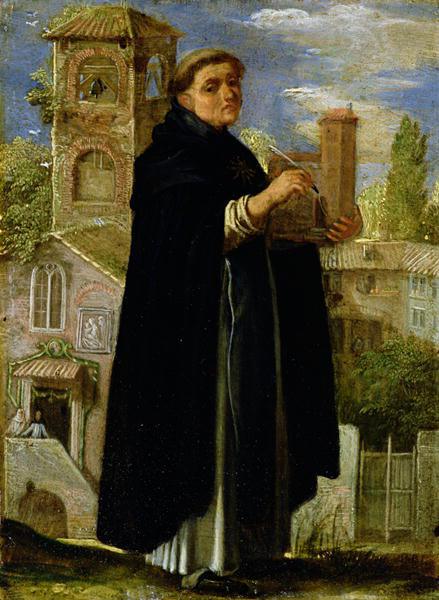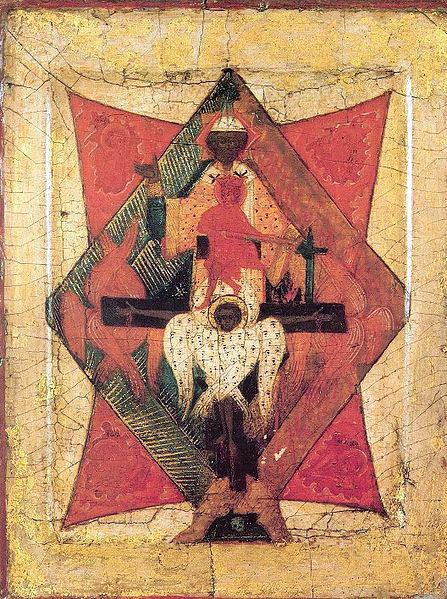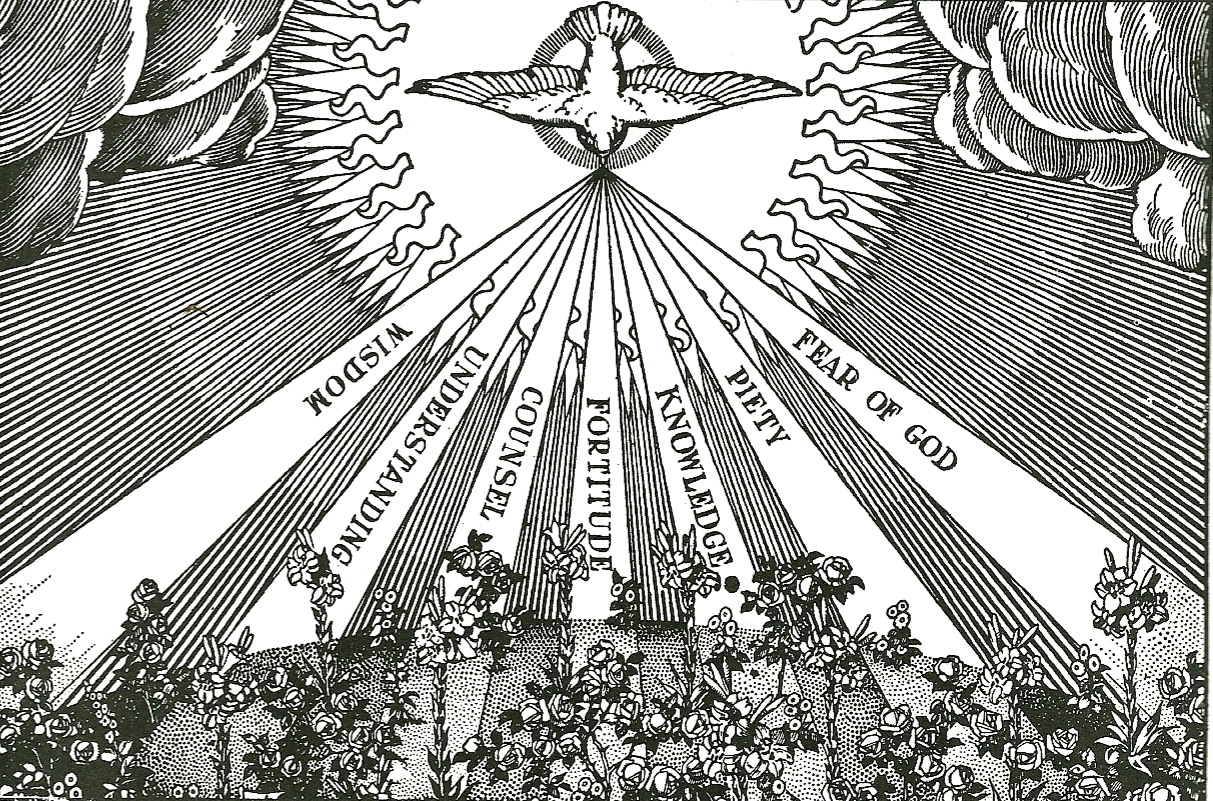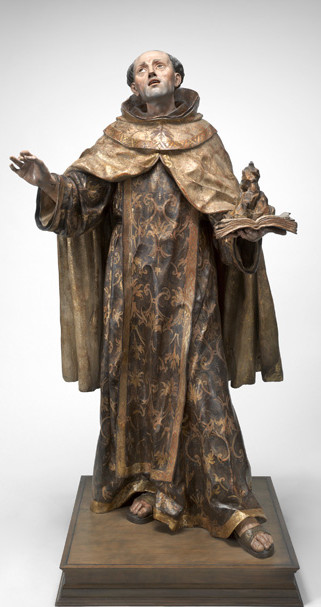As a true Savior, as a Physician as firm as He is wise and discreet, He applies the fire and the iron now to this place, now to that, but particularly there where His practiced eye sees faults to be expiated, defects to be corrected or a weak point to be strengthened. In spite of the protests of nature, He will continue the treatment with a merciful severity, so long as He judges it necessary to complete our cure and to dispose us for the reception of His gifts…God wills to temper and to tame it (self-will)….There can be no greater or livelier faith than to believe that God is managing our affairs with admirable wisdom and love when He seems to be destroying and annihilating us, when He frustrates our holiest designs, when He exposes us to calumny, obscures all our lights in prayer, dries up our devotion and fervor with aridities, ruins our health with infirmities and languors, reduces us to incapacity for doing anything at all. –Abbot Vital Lehodey.
Archives

Subterfuge Impossible
‘contemplation is the soul’s free and clear dwelling upon the object of its gaze’. (Aquinas)
Three things are required for contemplation. First, the ordering of the corrupt affections, which ordering is a certain disposition towards contemplation, and this is had through the moral virtues. So the wings are moral virtues, such as patience and humility etc…Another wing is charity which greatly helps one to fly to contemplation…Another wing is wisdom, and by the wings of wisdom, truth is contemplated, for without these wings, one is easily taken into errors if divine things are contemplated…(Aquinas)
…Super Psalmos, the image of ‘wings’ occurs a number of times and most memorably, perhaps, when Thomas is referring to the power of Christ’s protection. Thus, commenting on the phrase Protect me under the shadow of your wings, he writes: ‘The two wings are the two arms of Christ extended on the cross’….
Now shade protects us from heat, just as God’s care refreshes us with safety. Like wise a hen protects her chicks in her wings against a bird of prey, just as God defends the just from the rapacity of the demons in his wings, which are charity and mercy. How often I wanted to gather you just as a hen gathers her chicks under her wings, and you would not. Mt. 23.37…
The actual life of contemplation, evoked by the phrase ‘contemplata aliis tradere’, is a way of life that can hope to survive and flourish only if it is able enjoy a serene, meditative environment….Those who ‘take flight’ in contemplation, and in particular those who make great progress in prayer, are not men and women of a complacent and self-satisfied disposition. No, the opposite is the case. Commenting on the text, This poor man called and the Lord heard him, (Psalm 33), Thomas (Aquinas) observes that the individual, in this case, was manifestly ‘poor in spirit (anawim), or poor in that way, or poor in earthly desires’. And it is men and women who are poor in that way, Thomas insists, whose prayer has real merit in the end, and who, because they cry out ‘with the intensity of interior desire’ find their prayers answered by God.
To me, poor wretch,
Come quickly, Lord!
My helper, my savior, my God,
Come and do not delay!
These lines of manifest poverty of spirit, and intense longing, comprise the short stanza which concludes Psalm 39. The Dominican Master, instead of simply commenting on the lines, expresses something of their meaning in his own direct and simple prose:
I am asking everything because by myself I am not able to do anything since I am a beggar…A beggar is someone who seeks from another what he needs to live, while a poor man is someone who has not enough for himself…I must out of necessity, therefore, beg God for the help of his grace. I am also a poor man, and what I possess is not enough for me. Because I recognize this, the Lord takes care of me. And, because I am needy, You, Lord, are my help. And, because of danger, Do not delay! Lord, come to my aid!
–Paul Murray OP ‘Aquinas at Prayer: The Bible, Mysticism and Poetry’

Maintaining Fortitude
I have been reflecting upon a statement Myron, a respected spiritual director repeated that one could not retreat, nor cease upon the spiritual path. Once an individual progresses there is no going back, nor is there a point of termination. One cannot rest upon one’s laurels. One never reaches an end. God always demands more, acutely desiring growth, challenging for continual progress in humility and trust (faith), prayer (hope), and charity; a persistent revealing of the utility of the gifts of the Holy Spirit in our contemplative and active lives. I cannot embark upon the contemplative life with a passion; experiencing sweet consolations, enjoying the blessing of graces for myself and those I love, comprehending a presence within prayer efforts possessing poignant profoundness—only to falter when matters become challenging, or personal situations become demanding. Boredom, sloth, can be crippling quandaries. Not only do I become still in my knowing, I learn to remain still, trusting God under all conditions.
My spiritual life must become the foundation of my life. All other activities and experiences nurturing, pointing back, allowing quietness during properly dedicated times of prayer and devotion. Well rounded socially—not a spiritual glutton, physically active and participating in the world with secular and religious brothers and sisters, absolutely loving life and creation, I place the Creator above and in proper perspective, while active as an ordinary simple man in the world. I love my Tuesday and Fridays, days every week I play basketball. The competition and exercise emboldens my spiritual life, even if I have a terrible day on the court. Contemplatively, efflorescence occurs when a naturally arising, authentic, love for life and creation pours forth. I found it impressive that St Jane de Chantal, suffering immense spiritual darkness, conducted herself with no bleakness. She comprehended the vitality of displaying faith, hope, and charity.
I cannot experience God’s approval for furthering contemplative devotion, then respond with a decision to scale back my efforts. The softer easier road cannot be embarked upon once the narrower road has been presented. A calling recognized, I must embrace, trusting in God, focused upon revealing further His desires. There is a former priest I socially encounter that always leaves me disturbed. During a Christmas gathering this past holiday season, I encountered the gentleman. Assuming center stage, he led Christmas carols during the large dinner party. Articulate, highly educated, adept in foreign languages, knowledgeable in worldly affairs, ardently putting forth liberal ideals, he talked unceasingly. It never ceases to amaze me how awkwardly false the man appears. Comically, his clothes always seem too big for him, never quite fitting properly. His behavior comes off contrived and premediated, overly thought out and self-conscious. His words are too loud, and his tendency to leer at women make him socially graceless. I know the man’s story for he shared it with me during a private dinner. His childhood was marked by an early declaration he would become a priest. A recognized child genius, an extremely high IQ, he graduated from high school in his early teens, immediately entering the seminary. I am not sure of his tenure as a priest, yet I do know he left the priesthood after discerning marriage as his proper vocation. The man is now divorced, a recovering alcoholic, and tragically recently endured the suicide of an adult son. The whole matter leaves me perplexed, a lasting dark feeling–even now I pause to offer prayers for his peace of mind. Avoiding judgment or affirmations, I just cannot make sense of matters when this man is near. Everything seems completely out of order, self-will seemingly making an absolute disaster out of life, chaos all too apparent.
He who trusts himself is lost. He who trusts God can do all things. —St Alphonsus Ligouri
With those who are perfect and walk with simplicity, there is nothing small and contemptible, if it be a thing that pleases God; for the pleasure of God is the object at which alone they aim, and which is the reason, the measure, and the reward of all their occupations, actions, and plans; and so, in whatever they find this, it is for them a great and important thing. — Saint Alphonsus Rodriguez

Holy Hour and St Jane de Chantal reflection
Background a Crucifix
Forefront the Eucharist
Here am I
Here
I
Am
Fully present
Adoring aware
Transfixed staring
Removed from the world
Silently reposed
Cleverness collapsed
Intellect annihilated
Willing to be dumb
No more bright ideas
Eradicated schemes
As quiet as a mouse
Still
Knowing enough is enough
Lord
Fill me to overflowing
I say know thy self. Understand there will never be a shortage of people willing to throw themselves into the limelight and attention of obsessively active lives. There will always be a shortage of people willing to recede, dedicating themselves to lives of prayer and contemplation, silently and secretly turning to God.
A quote I borrow from Contemplative in the Mud. It precisely states a personal conviction and dedication
“A soul who has this spirit of prayer [contemplation] does more work in one hour than another, who is without it, will do in many; and her work done, she hastens to converse with her God, for this is her repose”. —Saint Jane Frances de Chantal
St Jane de Chantal was therefore reduced to such a state that nothing on earth could afford any comfort, excepting the thought of death, “It is now forty-one years that temptations have been overwhelming me,” she said one day. “Ought I therefore to lose courage? No! I am determined to hope in God even though he should kill me and annihilate me forever.” She added these humble and magnificent words: “My soul was a piece of iron so rusted with sin that it needed this fire of Divine Justice to burnish it a little.”
“In the state of abandonment,” writes St Alphonsus, “Her one rule of conduct simply to look at God allow him to act. She always exhibited a cheerful countenance, was pleasant in conversation and kept her eyes continually fixed on the lord, reposing in the bosom of his adorable will. Saint Francis de Sales, her director, knowing how beautiful this soul was in the sight of God, compare her to a deaf musician who produces exquisite music, yet can derive no pleasure therefrom. He wrote to her as follows: ‘You must manifest an invincible loyalty towards the savior, serving him not alone without satisfaction but under the cruel oppression of sadness and fear.’ Later on, Mother de Chantel gave this prudent and virile counsel: ‘Never speak of your troubles either to God or to yourself. Do not scrutinize them. Keep looking at God and if you can speak to Him, speak to Him only of Himself.’. —Abbot Vital Lehodey, ‘The Way That Leads to God’.
Intense words from St Jane de Chantal. It reminds me of a recent extremely heated and emotional confrontation I was a part of, a situation that exhausted and defeated to the deepest depths. The healing necessary to love God on the deepest level, to bring about holy unification, the synchronization of individual will with Divine Will, occurs absolutely within the natural and daily realm. It is warfare. Generalizing, the extended confrontation involved myself being wounded within a complex situation. Creating overwhelming emotional turmoil, I found myself tuned through Eucharistic adoration, mass, the receiving of the Eucharist, and participation amidst a splendid congregation and my favorite Poor Clares. Something of note I want to stress is that St Jane de Chantal’s words are more than intellectual wisdom, more than an entertaining pursuit. They are difficult words to embrace, bringing fruition only through struggle. To advance upon the contemplative path they must become a daily reality. The sadness and fear she worked through as she concentrated her focus upon God are stark and harsh daily realities to be warred against, individual warfare to the extreme. The gifts of the Holy Spirit are the weapons able to provide progress.
The words St Jane de Chantal writes attain profoundness, able to shower graces, when lived. If intellectualizing about the spiritual life is just that, solely an exercise in cleverness, it is sheer pride, vanity of vanities. To read, comprehend, and admire winged words means nothing if they do not assist us in growth. The reason I point this is out is that during my recent confrontation a remark was made that I find enlightening, one that must be understood. Stressing that a certain act I made was soundly grounded in faith, hope, and charity–making the assertion several times, I was rebuked with the sarcastic comment associating my words as cartoonish. The insinuation being that the ideals pursued during my deepest religious efforts were really not applicable in tremendously challenging and complex psychological moments, including a moment when individual brokenness of two authentically religious pursuing human beings came into severe conflict. The implied message that during extreme difficulties religious ideals are actually humorous if applied is enlightening. The dramatic dark undertone defining the religious life, and therefore God, as purely idealistic. During the most difficult of moments–beyond self-will, involving individual damage, psychological distortions that are self-inflicted and inflicted by others reaching back to earliest childhood, while always under the watchful tending of God, to the care of Mary, the times St Jane de Chantal describes as presenting her with death as a tender mercy, these brutally problematic times must not be a time of abandoning the virtues and the gifts of the Holy Spirit.
The gifts of the contemplative spirit: wisdom, understanding, and knowledge/piety prove essential in shaping our foundation for employing the active gifts in our daily life, thus the expansion of the virtues within, providing greater contemplation. The natural life properly, penetratingly, and curatively cared for produces immense spiritual growth. It demands individual responsibility, and thus accountability. It is a matter of our doing. Let’s take inspiration from David’s slaying of Goliath. The contemplative gifts are the weapons, the stones waiting in David’s pouch, to be utilized in warring against our Goliaths the deepest parts of ourselves that are not only interiorly wounding, but also dangerous to those who dare to love us. We are not David. We do not kill our Goliath with the one stone of charity. We must utilize all the stones in our holy pouch. We must not fall away from the gifts of God during personal warfare. As St Jane de Chantal declares: ‘No! I am determined to hope in God even though he should kill me and annihilate me forever’. David rejected the armor of Saul, the softer easier path of the worldly. It is during our most severe struggles that we must be drawn to that which is holy, to that which is above, striving for that which I know in my heart I should be. It is why the saints are vital to the spiritual life. The saints not only provide wisdom, they give example.
The saints did not seek out the softer easier way. A natural tendency is to be drawn away from the difficult, the truly redemptive, seeking comfort in things that are not holy, opting for the shallowness of worldly things and people who do not aspire toward God. It is important to recognize the opposite softer easier path that being the path of spiritual gluttony, avoiding personal growth through excessive involvement in religious matters. To over indulge is just as dangerous as being drawn away from the holy. If I seek the holy for wisdom, while ignoring piety, not on an evil level, but on a level of avoiding the most hurtful growth, I am not expanding my faith, hope, and charity through the gifts of the Holy Spirit. If God has placed holy things in my life and I am drawn to unGodly, not evil but shallow, superficial people, places, and things I am embarking upon a wayward path, especially if I have dedicated my life to the deeper calling of a contemplative in the world. An immature spirituality seeks out that which possesses no serious depth or maturity. While embracing the ordinary, not seeking self-inflicted austerities–for such austerities are spiritual gluttony rather than redemptive, I must be able to embrace the difficult. With respect to eternity, the narrow harder path is truly the softer easier path.
St John of the Cross provides spiritual guidance: Strive always to choose not that which is easiest, but that which is most difficult, not that which is most delectable, but that which is most unpleasing; not that which gives most pleasure, but that which gives no pleasure. To choose not that which is restful, but that which is most worrisome; not that which gives consolation, but that which gives no consolation; not that which is greatest, but that which is least; not that which is loftiest and most precious, but that which is lowest and most despised; not that which is a desire for anything, but that which is a desire for nothing. To go about seeking not the best things but the worst. And to have detachment and emptiness and poverty, with respect to that which is in the world, for Jesus Christ’s sake.

St John of the Cross enraptured
The Living Flame Of Love
Songs of the soul in the intimate communication of loving union with God.
O living flame of love
that tenderly wounds my soul
in its deepest center! Since
now you are not oppressive,
now consummate! if it be your will:
tear through the veil of this sweet encounter!
O sweet cautery,
O delightful wound!
O gentle hand! O delicate touch
that tastes of eternal life
and pays every debt!
In killing you changed death to life.
O lamps of fire!
in whose splendors
the deep caverns of feeling,
once obscure and blind,
now give forth, so rarely, so exquisitely,
both warmth and light to their Beloved.
How gently and lovingly
you wake in my heart,
where in secret you dwell alone;
and in your sweet breathing,
filled with good and glory,
how tenderly you swell my heart with love.

Mary Hidden
Can I offer myself to God solely based upon pure intent, simple and humble in nature, seeking no accolades or self-glorification on the deepest level. Unworthy servant I am, do I truly understand who I am and who God is? Forsaking self-promotion, abandoning faith focused upon personal elevation, I touch upon truth. Praying in a hidden alcove, loyal to the Church, collapsed upon the shoulders of saints, reposed within ritual and tradition, adoring the cross, resurrection, and Eucharist, the nature of grace reveals herself. A loving Mother hovering tenderly above dispenses abundantly.
Mary lived in obscurity most of her life. Her humility was so great that she desired to hide, not only from all other creatures, but even from herself, so that only God should know her. She asked Him to conceal her, and to make her poor and humble. God delighted to hide her; in her conception, in her birth, in her mysteries, in her resurrection and assumption. St Louis de Montfort ‘True Devotion to Mary’
Mary’s unknowing: “How shall this happen, since I do not know man?” Luke 1:34
So often God performs his greatest work in silence. Mary is alone. As the Holy Spirit comes upon her, and the power of the Most High covers her with its shadow (Luke 1:35-36), she conceives the Holy One to be called Son of God. The whole world was to be affected by this event which God worked in seclusion and silence. So, too, does His grace work in one’s soul. Mary’s was a secret joy until God willed to reveal it to others.
Mother Mary, pray for us that we may always allow God’s grace to work silently in our soul
During mass, am I consumed with adoration, gratification for the miracle of the Eucharist? Am I participating fully, or am I focused upon others, perhaps imagining others admiring, reducing the most sacred of time down to worldly imperfection? Does my mind wander, unfocused, consumed by fantasy, imagination running wild? Am I intellectualizing, perceiving myself an authority of the Church, judging the piety of others, reasoning, delusional in thought, seeing myself as a Bible scholar. Am I consumed with myself or have I stilled my mind? There before me, willing to be consumed, is the Presence. Opening heart and mind, the left hand unaware of the right, I must offer my brokenness to Christ, concentrating upon who Christ is? Who are you Lord? Lord who are you? Please, I beg Lord, let Yourself be known to me? I am quiet, stilled, empty, constantly engaged in the process of transforming myself into a vessel worthy of filling. I hear the Gospel–the Good News. I ingest the Host. I verbalize responses? I have prepared myself for mass through proper conduct, maintaining sanctifying grace, devoted to contemplation, cleansing psychologically, I wait upon You, my Lord. Lord, authentically, I approach. I am willing to acknowledge ignorance in order to know You better my Lord. Allow me to understand who you are. Lord I want to know You, to accept You in your fullness. Fill me Lord–my heart, soul, body and mind are Yours. All I am is Yours.
Oh Great and Glorious God, enlighten the darkness of my heart. Give me true faith, certain hope, and perfect charity. Grace me with understanding and knowledge so that I may carry out Thy commandments. The simple prayer offered by Saint Francis of Assisi before the cross of San Damiano. Christ responded.

An individual amidst the crowd
…And a great crowd followed him and thronged about him. And there was a woman who had had a flow of blood for twelve years, and who had suffered much under many physicians, and had spent all that she had, and was no better but rather grew worse. She had heard the reports about Jesus, and came up behind him in the crowd and touched his garment. For she said, “If I touch even his garments, I shall be made well.” And immediately the hemorrhage ceased; and she felt in her body that she was healed of her disease. And Jesus, perceiving in himself that power had gone forth from him, immediately turned about in the crowd, and said, “Who touched my garments?” And his disciples said to him, “You see the crowd pressing around you, and yet you say, ‘Who touched me?’” And he looked around to see who had done it. But the woman, knowing what had been done to her, came in fear and trembling and fell down before him, and told him the whole truth. And he said to her, “Daughter, your faith has made you well; go in peace, and be healed of your disease.” –Mark 5:24-34
And behold, a woman who had suffered from a hemorrhage for twelve years came up behind him and touched the fringe of his garment; for she said to herself, “If I only touch his garment, I shall be made well.” Jesus turned, and seeing her he said, “Take heart, daughter; your faith has made you well.” And instantly the woman was made well. –Matthew 9:20-22
As he went, the people pressed round him. And a woman who had had a flow of blood for twelve years and had spent all her living upon physicians[a] and could not be healed by any one, came up behind him, and touched the fringe of his garment; and immediately her flow of blood ceased. And Jesus said, “Who was it that touched me?” When all denied it, Peter said, “Master, the multitudes surround you and press upon you!” But Jesus said, “Some one touched me; for I perceive that power has gone forth from me.” And when the woman saw that she was not hidden, she came trembling, and falling down before him declared in the presence of all the people why she had touched him, and how she had been immediately healed. And he said to her, “Daughter, your faith has made you well; go in peace.” –Luke 8:42-48








Recent Comments